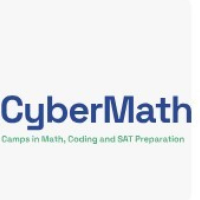As the school year draws to a close, many high school students face a familiar question: how to spend their summer break. While some may opt for relaxation or part-time jobs, a growing number of students are turning to summer science programs for high school students. These programs offer unique opportunities to delve into scientific subjects, gain hands-on experience, and prepare for future academic and career pursuits. Let’s explore how these programs can be a transformative experience.
Exploring the World of Science
Summer science programs come in various forms, ranging from local day camps to intensive residential programs at prestigious universities. These programs cover a broad spectrum of scientific disciplines, including biology, chemistry, physics, environmental science, and more specialized fields like robotics, astronomy, and biotechnology. By participating in these programs, students can explore their scientific interests in-depth, often in ways that go beyond the traditional high school curriculum.
One of the significant advantages of these programs is the access to advanced laboratory facilities and equipment. High school students rarely have the opportunity to work with state-of-the-art technology and tools during the regular school year. Summer science programs bridge this gap, allowing students to conduct experiments, engage in research projects, and gain practical skills that are crucial for their future academic and professional endeavors.
Building Skills for the Future
In addition to deepening their knowledge of scientific subjects, students in summer science programsdevelop a range of valuable skills. Critical thinking, problem-solving, and analytical skills are at the forefront, as students tackle complex scientific questions and challenges. Moreover, these programs often emphasize teamwork and collaboration, helping students learn how to work effectively with others – a vital skill in any career.
Communication skills are also honed through presentations, reports, and discussions. Students learn to articulate their ideas clearly and confidently, an ability that will serve them well in college and beyond. The experience of presenting research findings to peers and mentors can be particularly empowering, boosting students’ confidence in their abilities and their passion for science.
Gaining a Competitive Edge
For students aspiring to attend top-tier universities, participation in a summer science program can be a significant advantage. Admissions officers recognize the dedication and ambition required to engage in such programs, viewing them as evidence of a student’s commitment to their field of interest. Additionally, the experiences and achievements from these programs can enhance college applications, providing compelling content for essays and interviews.
Many summer science programs also offer mentorship opportunities, connecting students with professionals and academics in their field of interest. These mentors can provide valuable guidance, from advice on college applications to insights into career paths. The relationships built during these programs can open doors to future internships, research opportunities, and academic collaborations.
Preparing for Life Beyond School
Beyond academic preparation, summer science programs equip students with life skills that are essential for personal and professional success. Time management, independence, and resilience are often cultivated as students navigate rigorous schedules and challenging projects. For those attending residential programs, the experience of living away from home fosters a sense of independence and self-reliance.
Furthermore, these programs often encourage a broader perspective on science and its role in society. Students may engage in projects that address real-world issues, such as environmental conservation, public health, or technological innovation. This experience can inspire a sense of purpose and a desire to contribute positively to the world, shaping students’ future career choices and personal values.
Summing up, summer science programs for high school students offer an invaluable opportunity to explore scientific passions, develop essential skills, and prepare for future academic and career success.







Leave a Reply